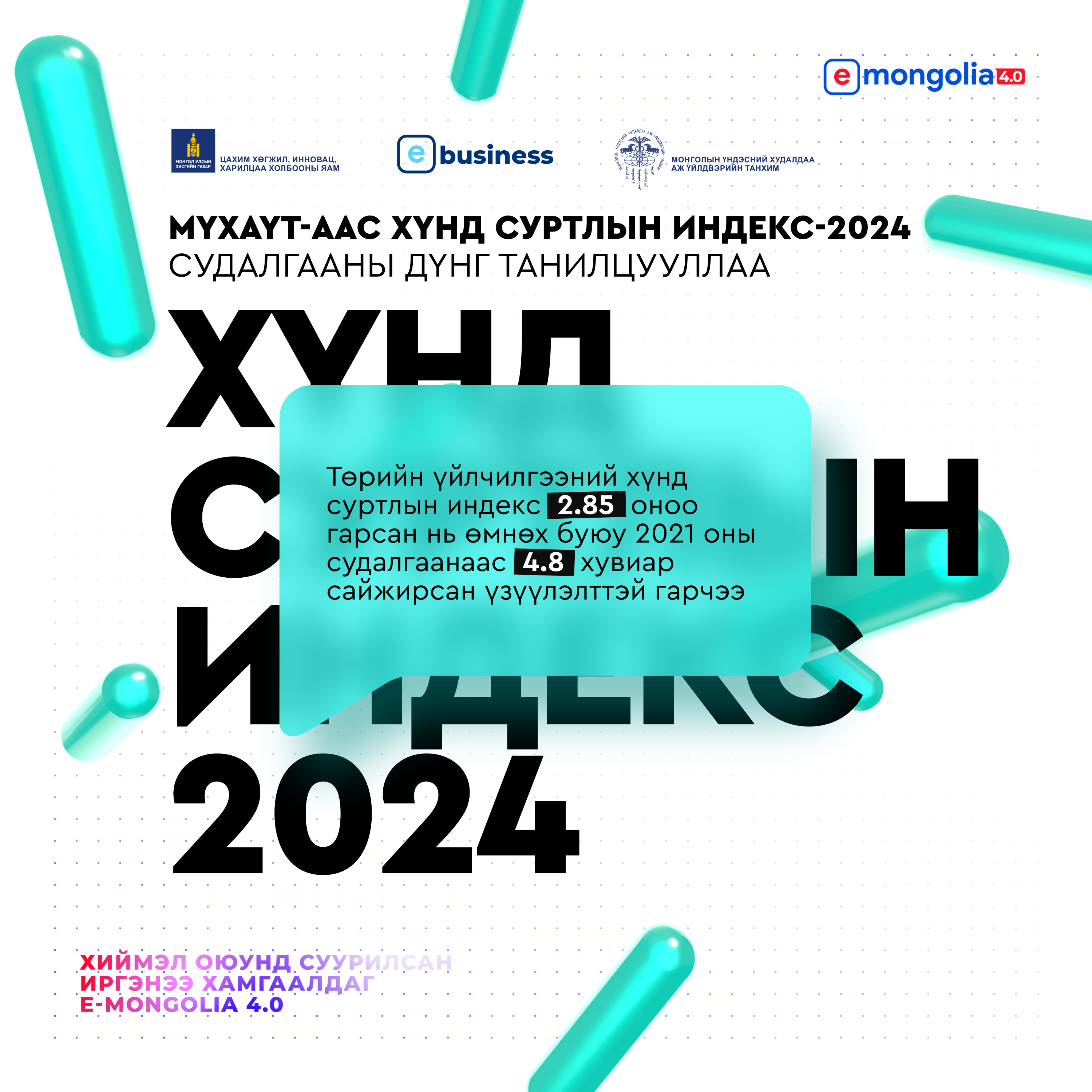The government of Mongolia has made significant progress in eliminating the concept of “bureaucracy,” which has caused difficulties for citizens and business owners for many years. This progress has become increasingly noticeable over the years. According to the 2024 results of the “Bureaucracy Index” survey conducted by the Mongolian National Chamber of Commerce and Industry (MNCCI) over the past 20 years, it was concluded that “the quality and accessibility of government services have improved.”
The survey showed that the bureaucracy index for public services is 2.85 points, which is a 4.8% increase compared to the 2021 survey, a positive indicator. The majority of the business owners participating in the survey highlighted that government digital platforms, such as "E-Mongolia" and "E-Business," have made a real contribution to reducing bureaucracy.
The digital governance transition initiated by the Mongolian Government in 2019 has started to yield real results. Launched in 2020, the E-Mongolia system now provides 1,264 types of services from 88 organizations to citizens online. The system has facilitated government services more than 79 million times. Currently, 88% of adult citizens are users of the system, easily accessing electronic services in their daily lives, without delay, from anywhere. This represents a tangible shift from the traditional system, which relied on paper, signatures, and waiting in queues, to an electronic format.
Mongolia’s e-governance was also positively recognized at the international level in 2024. According to the United Nations E-Government Development Index, Mongolia ranked 46th out of 193 countries and 13th in the Asian region. This ranking serves as international recognition of the scope and effectiveness of the country’s digital public services.
According to the United Nations E-Government Development Index, Mongolia ranked 46th out of 193 countries and 13th in the Asian region. This ranking serves as international recognition of the scope and effectiveness of the country’s digital public services.
However, experts emphasize that the government’s digital transformation must continue without interruption. There is a growing need to eliminate bureaucratic inefficiencies entirely and establish a transparent, efficient public service system by introducing advanced solutions such as artificial intelligence, data analytics, and automated response systems.
Today’s results and international recognition, there remains a pressing need for Mongolia to advance to the next stage of e-governance and further enhance public services to be more citizen- and business-friendly.



